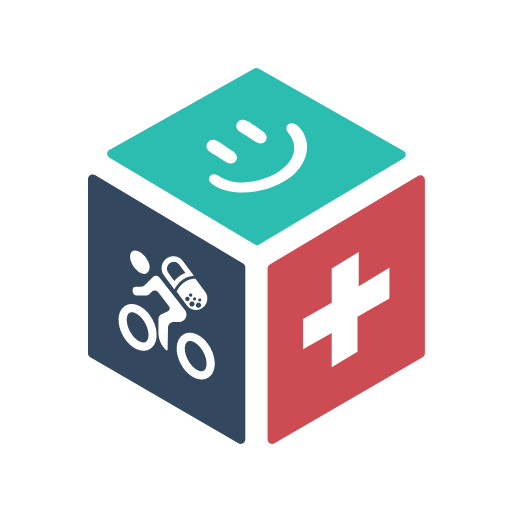Generic Information
PHENIRAMINE MALEATE
Pheniramine Maleate is indicated in allergic conditions (hypersensitivity reactions) such as: Hay fever (pollinosis) with attacks of sneezing, itching, running of the nose, conjunctivitis. Urticaria with pruritus and reddening, wealing and swelling of the skin. Eczema of nervous origin (neurodermatitis) with pruritus.
Sedating Anti-histamine
Pheniramine is an alkylamine derivative with histamine H1-receptor antagonist effects. It also has anticholinergic and moderate sedative effects.
Unless otherwise prescribed by the doctor, the following dosages are recommended for the different dosage forms: Pheniramine Maleate Injection Solution: Except in life threatening conditions, the initial dose should be kept as low as possible: particularly in small children, a daily dose of 3 mg active substance per kg body weight should not be exceeded. The following doses are administered once or twice daily: Adults and Young people aged 12 years or over: 1.0-2.0 ml IV/IM. Children aged 1-2 years (about 11-14 kg body weight): 0.5-0.7 ml IM only Children aged 3-5 years (about 20 kg body weight): 0.8-1.3 ml IM only Children aged 6-11 years (upto about 25 kg body weight): 1.0-1.5 ml IM only Pheniramine Maleate Injection (45.5 mg/2 ml): This is administered to adults and young people aged 12 years or over either slowly by intravenous route (1 ml per minute) or intramuscularly. To infants and children up to 12 years old the injection must only be given intramuscularly. The recommended dose may be repeated at 12 hourly intervals until acute symptoms have subsided. Pheniramine Maleate can be combined with commercial calcium preparations but the compatibility should be tested in individual case. Pheniramine Maleate Tablet (22.7 mg): In adults and young people of over 12 years of age it is advisable to begin treatment with 1 tablet 2-3 times daily after meals. If necessary, the daily dose may be increased to 2 tablets 3 times daily from the second day of treatment onwards. Pheniramine Maleate Syrup (15 mg/5 ml): is particularly suitable for children. Children aged 1-3 years should receive half a measuring spoonful two or three times daily; children aged 4-12 years, 1 measuring spoonful 2 or 3 times daily; adults and young people 1-2 measuring spoonful of syrup twice or three times a day after meals. A daily dose of 3 mg/kg body weight must not be exceeded. Diabetics must bear in mind that Pheniramine Maleate Syrup contains carbohydrates which are equivalent to 1.75 gm glucose per measuring spoonful (5 ml) Pheniramine Maleate Retard Tablet (75 mg): The coated tablets have a prolonged action. In most adults and adolescent over 12 years of age 1 coated tablet taken after supper is sufficient to produce an antihistaminic effect that for up to 24 hours. Only in very resistant cases will it be necessary to give an additional coated tablet in the morning after breakfast. The tablets are swallowed whole with a little liquid.
The effect of drugs which act on the central nervous system (e.g. tranquilizers, sedatives, neuroleptic agents and MAO inhibitors) and of alcohol may be potentiated.
Hypersensitivity to pheniramine. The Syrup is contraindicated in patients hypersensitive to Methyl Hydroxybenzoate and Propyl Hydroxybenzoate. Prostatic hypertrophy with residual urine formation.
Occasionally there may be drowsiness, gastrointestinal complaints, dryness of mouth, palpitation, urinary retention or hypersensitivity reactions. In isolated cases, higher doses may produce hallucinations, restlessness or confusion; in small children, agitation. In patients with narrow angle-glaucoma a rise in intraocular pressure is possible, which makes opthalmologic control necessary. Even if used according to prescription, these preparations may reduce alertness to such an extent that the ability to cope with street traffic or operate machinery is impaired.
Pregnancy Category C. Either studies in animals have revealed adverse effects on the foetus (teratogenic or embryocidal or other) and there are no controlled studies in women or studies in women and animals are not available. Drugs should be given only if the potential benefit justifies the potential risk to the foetus.
Symptoms: Agitation and convulsions (especially in children), and restlessness, disorientation and hallucinations in adults. Accidental ingestion in small children has resulted in convulsions and in some cases fatal. Treatment: No specific antidote; symptomatic and supportive. Gastric lavage may be useful for some time after ingestion. Do not use stimulants. Diazepam or short-acting barbiturates may be used to control convulsions. Vasopressors may be used for hypotension.
During pregnancy and lactation, pheniramine should be used only if strictly indicated, and after considering the benifit/risk ratio for mother and child.
Keep all medicines out of the reach of children. To be dispensed only on the prescription of a registered physician. Do not use later than the date of expiry.
